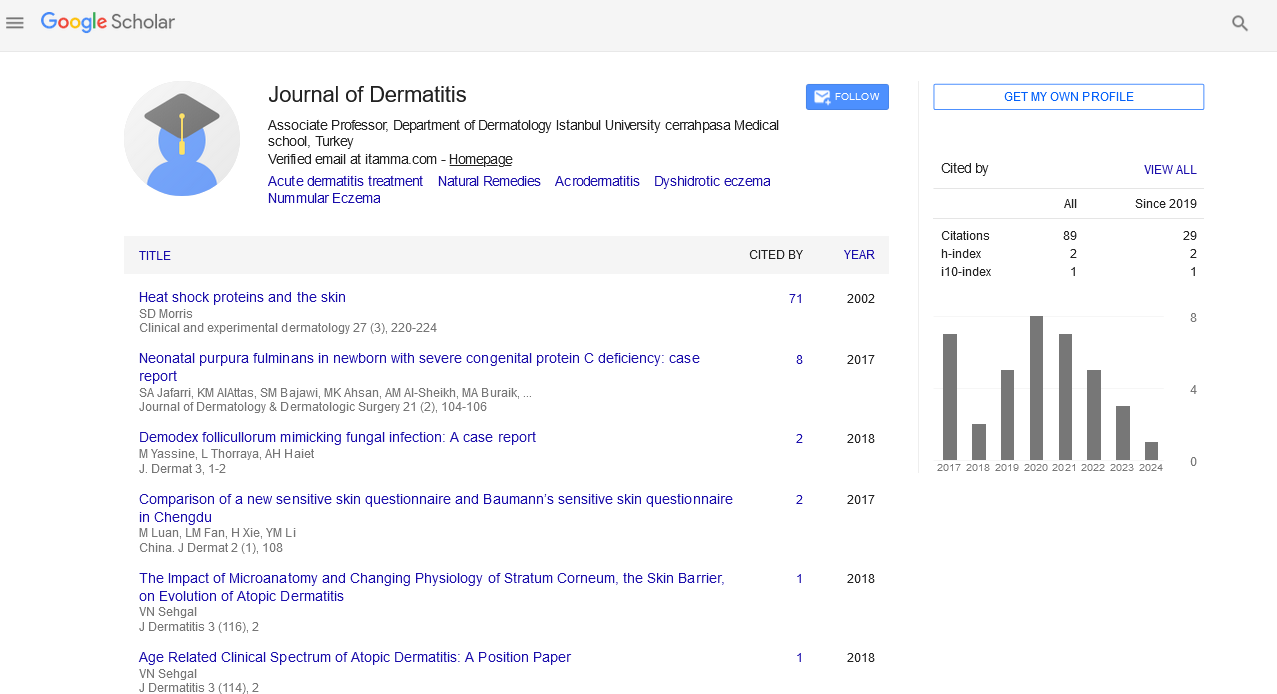Indexed In
- RefSeek
- Hamdard University
- EBSCO A-Z
- Euro Pub
- Google Scholar
Useful Links
Share This Page
Journal Flyer

Open Access Journals
- Agri and Aquaculture
- Biochemistry
- Bioinformatics & Systems Biology
- Business & Management
- Chemistry
- Clinical Sciences
- Engineering
- Food & Nutrition
- General Science
- Genetics & Molecular Biology
- Immunology & Microbiology
- Medical Sciences
- Neuroscience & Psychology
- Nursing & Health Care
- Pharmaceutical Sciences
Abstract
Polarization of Macrophage and Lupus Nephritis
Qiongyi Hu and Qiang Wang
Lupus nephritis (LN) is one of the common and severe complications in systemic lupus erythematosus (SLE), and is a leading cause of morbidity and mortality for SLE patients. It is well known that LN is characterized by the inflammation mediated by immune response in the kidney tissues, during which macrophage (Mø) plays a vital role. According to the varied microenvironments in different stages of lupus nephritis, macrophages are divided into two categories, namely classically activated macrophages (M1) and alternatively activated macrophages (M2). Macrophages can undergo phenotypical/functional switch and play different functions depending on multiple signal pathways, including STAT transcription factors, epigenetic aspects, NF-κB pathways, IRF transcription factors and some interleukins, chemokines and its receptors. Due to the heterogeneity and plasticity, the polarization of macrophages may exert an influence on the outcome of lupus nephritis. Thus, targeting the polarization of macrophages properly may become a new therapeutic treatment for lupus nephritis. This review focuses on how polarization of macrophages regulates the pathogenesis of LN.

